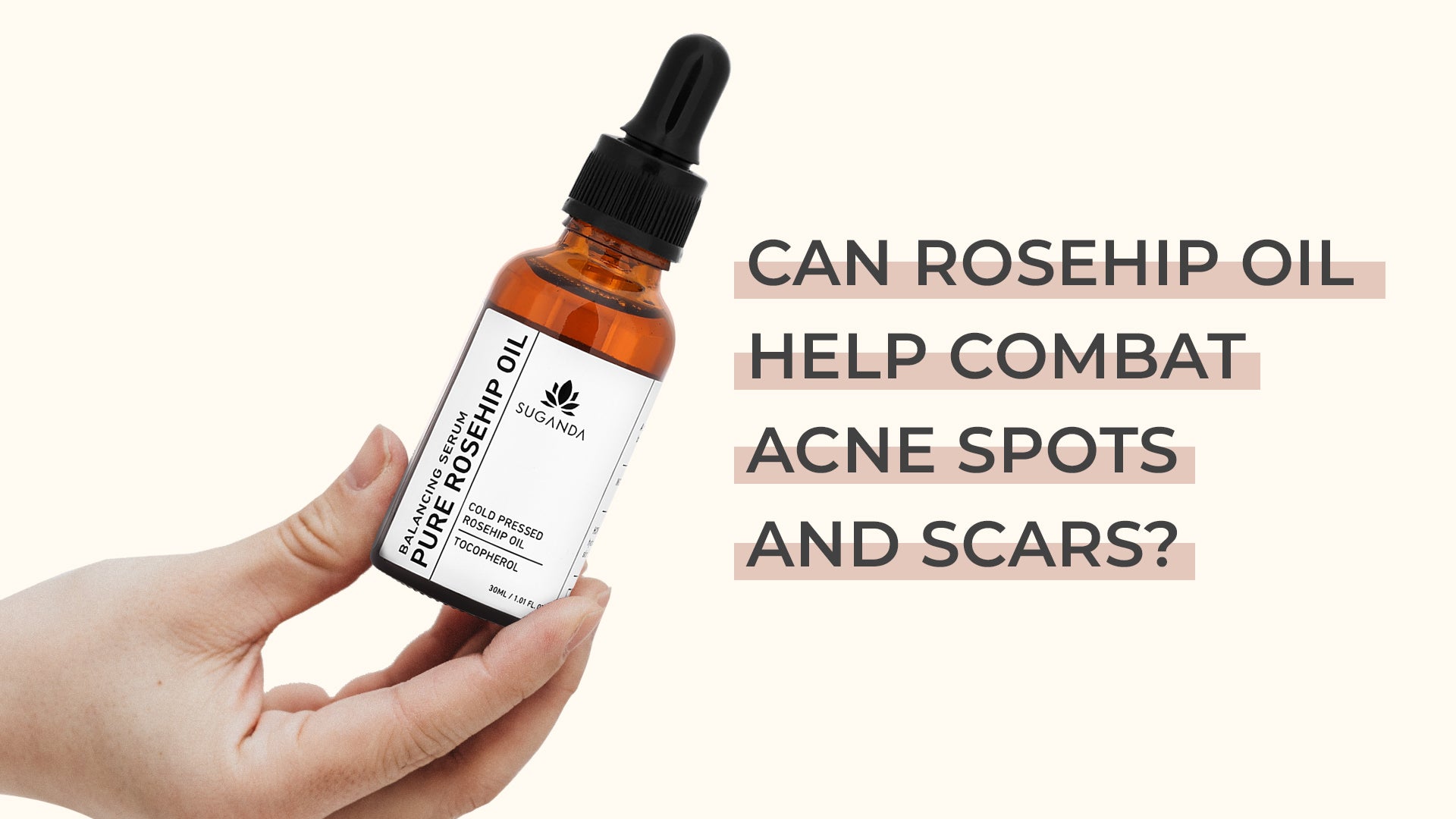Written by - Heena
As the name suggests, rose.hip oil is extracted from the fruit of the rose plant. It is largely known for its anti-inflammatory, anti-oxidant, anti-diabetic, and anti-cancer properties. As a result, this ingredient has been used since ancient times for cooking and medicinal purposes.
What Makes Rosehip Oil Effective?
Rosehip oil is packed with essential fatty acids and skin-nourishing vitamins that help treat acne spots on the face and scarring. It is filled with antioxidants like Vitamin C which have anti-inflammatory properties and are believed to stimulate your skin and repair it naturally.
The fatty acids in the rosehip also treat your wounds and scars magically.They make your skin cells softer and more porous, promoting quick healing. These fatty acids include;
- Linoleic acid
- Oleic acid
- Linolenic acid
In addition, rosehip oil also defends your skin from the following issues;
- Sun damage
- Inflammation caused by acne and eczema
- Early signs of ageing What Are the Key Ingredients in Rosehip Oil?
Collagen
Rosehip seeds are a powerhouse of collagen that encourages the regeneration of skin cells, which helps minimise the appearance of dark spots and acne scars.
Linoleic Acid
This ingredient contains a high amount of linoleic acid, an omega-6 fatty acid that controls the production of the skin’s natural oil (sebum). Linoleic acid helps regulate the production of sebum, minimising breakouts.
Vitamin A
Vitamin A is another key ingredient found in rosehip oil, which adds to the overall benefits. According to experts, vitamin A helps reduce the amount of sebum your skin produces every day.
Who Can Use Rosehip Oil?
Many people doubt that rosehip oil will help their acne. Is it safe for oily skin?Does it suit my skin type? Etc. This has also been addressed for you.
There are no tested guidelines or results for different skin types in case of using rosehip oil topically . Surprisingly, many users have vouched for the magical effects it has delivered, such as acne spot removal even on oily skin.
So, ditch the myth that you cannot use oil if you have an oily skin type.
Rosehip oil acts as an astringent, which is known to dry up the skin's natural oil while minimising the appearance of the skin pores. However, if you have a sensitive skin type, your skin might react differently.
Therefore, it is advised that you perform a patch test before applying it to your face.
What is the Right Way to Use Rosehip Oil?
You can use rosehip oil in both topical and supplement forms.
Some people, like pregnant women or individuals already battling other severe diseases, should avoid using oral supplements. For them, the external application of rosehip oil works best.
In the same way, when you are in the experimental stage, you should consider using topical rosehip first. Generally, you should see improvement within 6-8 weeks of use, but consider consulting your dermatologist if you notice no improvement.
What’s important is that you should always perform a patch test before using any new ingredient on your skin. It protects you from possible side effects.
If your current skincare products already contain Vitamin A or C, you might experience irritation because of an excessive supply of a certain ingredient, which results in hypervitaminosis. You should also avoid using topical rosehip oil if you are allergic to rose plants or other plants from the Rosaceae family.
Besides, consult your doctor before using rosehip oil if you are pregnant, breastfeeding, or already on medicines like steroids.How to Apply Rosehip Oil
Patch testing
- Apply a small amount to the inside of your forearm.
- Cover it with a bandage, and leave it for at least 24 hours.
- Remove the cover and check for redness, swelling, or other irritation signs.
- If you don’t see any side effects, you can add this product to your daily routine.
Regular application,
- Clean your face with a mild face wash.
- Use enough oil to cover your entire face.
- Use it twice a day for best results.
Sources :
1.Archives of Dermatological Research, 1998 July
2.Journal of the American Academy of Dermatology, 1986 Feb







 +91 9347578980
+91 9347578980